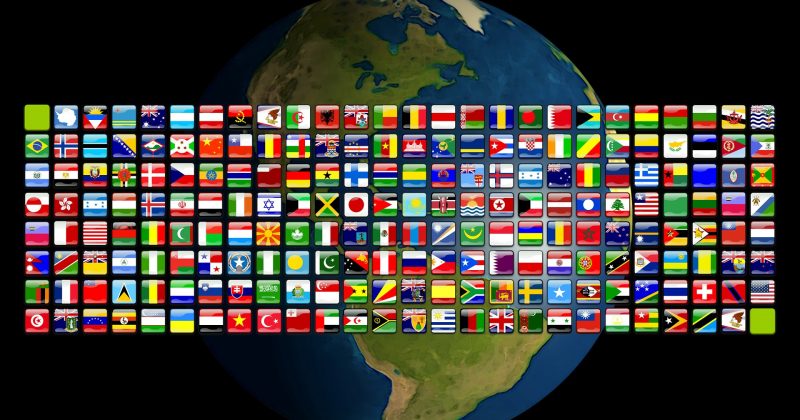Sarah Brady | September 25, 2018

The global economy is comprised of the globalized, linked economies of the world’s countries. But teaching the global economy leads to questions. What does it mean to live in a global economy? What are the benefits and disadvantages of the global exchange? How does that impact students and educators? How can students be prepared to participate in the global economy?
World View is helping educators prepare students for the global economy. This fall we’re offering two symposia with connections and resources to support educators. The K-12 Global Education Symposium October 17-18 will include global CTE professional development from the Asia Society’s Center for Global Education. The Community College Symposium on The Global Economy: The Future of Work will give insights into North Carolina’s global future and help educators prepare their students to thrive in a global workforce post-graduation.
Below are additional resources and lesson plans to help teach about the global economy in various grade levels and disciplines.
Elementary and middle-grade educators
NCSS recommends that students learn about human rights as they learn about economics. This provides context to a vague and hard-to-pin-down subject and can help students understand how human rights (and human rights abuses) are connected to the global economy. Teach about the UN Global Goals for Sustainable Development to bring up the challenges involved in expanding the global economy, including poverty, human rights, damage to the environment and more. This Human Rights and the Global Goals lesson plan is a good example for students in grades five and six, and this site from The Advocates for Human Rights has a variety of lessons for students in middle grades, including “The People Behind the Statistics” and “Human Rights, Responsibility and You.” Lesson plans on the global economy can also be easily altered to include a human rights lens. For example, this lesson plan from Education World asks students to bring in a favorite item of clothing and identify where it is produced. Add a deeper angle by having students research human rights violations in their country, or by having students show how their company protects human rights.
Middle- and high-school educators
For World Food Day (October 16), consider incorporating this Peace Corps lesson on global food security to teach about the economic challenges involved with food security, world hunger and sustainable agriculture.
High-school educators
Educators who teach Career and Technical Education can prepare their students for a global society by integrating global competencies into curriculum. Educating students as global citizens leads to increased tolerance, cross-cultural understanding and increased employability. The Asia Society’s Center for Global Education offers an online free CTE Toolkit that includes career planning tools, career/industry profile videos that spotlight why today’s jobs demand global competence, global CTE classroom projects broken down by career pathways, information on career pathways, background information on why global competence is necessary and more.
There are a variety of lesson plans online to help teach the scope and impact of the global economy. Fair Trade Campaigns has a set of four lesson plans that highlight global economics, gender equity, child labor and environmental sustainability – check them out here. This Changes Everything (a film and book about capitalism and climate change) has an extensive free lesson plan that explores how economic growth impacts human quality of life as well as the environment. In 2016, The New York Times published a lesson plan called Rethinking Globalization: Investigating the Benefits and Drawbacks of Global Trade from educator Michael Gonchar that includes a political lens, exploring why trade became a key facet of the last presidential election. PBS has a Global Women and Poverty lesson plan designed for social studies, government and economics classes that will show students the reality of the global economy by connecting it to the poverty of women in Senegal and Thailand.
Community college
Community colleges are a critical part of economic development in North Carolina. NC Community College System President Peter Hans says, “Our work in economic development spans the spectrum. . . . the community colleges’ Customized Job Training Program has trained over 36,000 people just this past year for literally hundreds of businesses, to provide them with the skills their employer needs to be successful. . . . Higher education must deliver more credentials of better quality to a growingly diverse population.”
One of those credentials is global competence. According to the North Carolina Department of Commerce, North Carolina “plays a strong role in the global economy” and has many global and international businesses. Community college students who graduate with global competency skills (especially those who graduate with Global Distinction through World View’s NCGD Program) have proven global experience and are prepared to play a role in NC’s global economy, making them strong job candidates.
